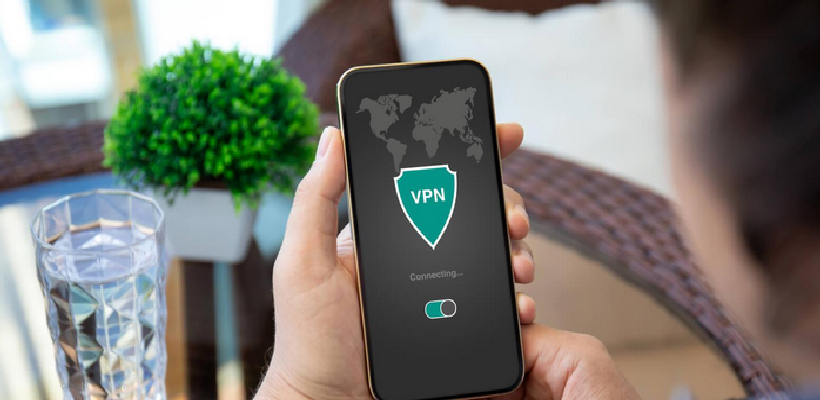
In an era where online privacy and data security are paramount, using a trustworthy VPN (Virtual Private Network) has become essential for anyone connected to the internet. As cyber threats continue to evolve, so do the methods companies, advertisers, and even governments use to collect and track personal data. With a VPN, users can safeguard their privacy, protect sensitive information, and enjoy a secure online experience. Here’s why internet privacy is so important today and why a reliable VPN can be a game-changer.
1. Understanding Internet Privacy and Its Importance
Internet privacy refers to the protection of personal information shared or accessed online. This can include browsing history, personal data, location, and any digital footprint left behind on the web. Many users are often unaware of how much of their information is collected and stored by websites, apps, and service providers. Often, this data is used for targeted advertising, but in more troubling cases, it can fall into the hands of cybercriminals.
Protecting internet privacy is essential because it prevents unauthorized entities from accessing your data. In a world where online transactions, social media, and remote work are commonplace, protecting personal data is more important than ever. By ensuring internet privacy, users can prevent identity theft, data breaches, and unwanted tracking, while maintaining control over their online presence.
2. How a VPN Enhances Internet Privacy
A VPN works by creating a secure, encrypted connection between your device and the internet. It reroutes your internet traffic through a remote server, masking your IP address and location. This process ensures that anyone trying to track your online activities will see only the VPN server’s information, not your actual location or personal details.
For those looking to browse the internet privately, a VPN is an excellent choice. It helps to keep browsing history, search habits, and online communications confidential by masking your identity and encrypting your data. This added layer of security is crucial, especially when using public Wi-Fi networks, which are notorious for their vulnerability to hackers.
3. Protecting Against Cyber Threats
With cyberattacks on the rise, protecting data from hackers has become a priority for individuals and businesses alike. Cybercriminals often target sensitive information, such as credit card numbers, social security numbers, and banking credentials. A VPN provides a first line of defense by encrypting the data you send and receive. This makes it challenging for hackers to intercept and decipher sensitive information, reducing the risk of identity theft or financial fraud.
Additionally, some VPNs offer advanced security features like malware protection and ad blocking, which further enhance your security and reduce the likelihood of falling victim to phishing attacks. When you choose a reputable VPN provider with a no-logs policy, you can rest assured that your data is protected not only from hackers but also from being stored and sold by the VPN provider itself.
4. Bypassing Geo-Restrictions and Censorship
In certain regions, internet users face restrictions on accessing specific websites, social media platforms, or news sources. VPNs help users bypass these geo-restrictions and censorship barriers by allowing them to connect to servers in different countries. This is especially beneficial for those living in countries with strict internet censorship, where access to free information and communication is limited.
For travelers, a VPN is also useful to access home-based streaming services, banking websites, or apps that may be unavailable abroad. By connecting to a server in your home country, you can continue using these services as if you were physically there.
5. Why a Trustworthy VPN Provider Matters
Not all VPNs are created equal. With the popularity of VPNs on the rise, many providers have entered the market, but not all of them are reliable or secure. Some VPNs have been found to log user data, store browsing history, or even sell information to third parties, defeating the purpose of using a VPN in the first place. It’s important to choose a provider with a strong commitment to user privacy, a transparent privacy policy, and a track record of protecting user data.
A reputable VPN provider should offer end-to-end encryption, a strict no-logs policy, and a large number of server locations. Many trustworthy VPNs also undergo independent security audits, verifying their claims and assuring users that their privacy is truly protected. Choosing the right VPN may cost more than a free option, but when it comes to privacy and security, it’s a worthwhile investment.
6. Balancing Privacy and Convenience
While a VPN greatly enhances privacy, it’s essential to remember that it isn’t a catch-all solution. Maintaining internet privacy requires additional measures, like using strong passwords, being cautious with personal information online, and keeping devices updated. Combining a VPN with these practices can provide a robust defense against online threats, giving users greater control over their digital footprint.
Conclusion
In an age of increasing digital surveillance, data collection, and cybercrime, protecting internet privacy is crucial. A trustworthy VPN offers the security of encrypted browsing, the flexibility to access restricted content, and the peace of mind that comes with knowing personal information is protected. Whether you’re working remotely, streaming content, or just browsing, a reliable VPN can make a significant difference in safeguarding your online presence and ensuring that your data remains yours.